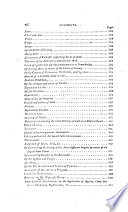 | Isaac Dalby - Mathematics - 1806 - 526 pages
...the first term of an arithmetical progression. d the common difference of the terms. / the last term. n the number of terms. s the sum of all the terms. Then /, f+d, /•+• 3d, f+ 3d, f + 4d, &c. will be an ascending series or progression, (122 Arith.)... | |
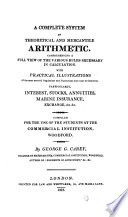 | George G. Carey - Arithmetic - 1818 - 602 pages
...common signs that are employed in Algebra*. Let a represent the first term. x • the last term. c/ the common difference. n . the number of terms. s — — — the sum of the series. 7. Given n, s, and x, to find a. .=.*_. n 8. Given <1, s, and x, to find a. a = </(\d +... | |
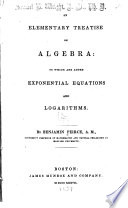 | Benjamin Peirce - Algebra - 1837 - 300 pages
...progressions. • To find the last Term. CHAPTER VII. Progressions. SECTION I. Arithmetical Progression. 173. An Arithmetical Progression, or a progression by differences,...the number of terms, S = the sum of all 'the terms. 174. Problem. To find the last term of an arithmetical progression when its first term, common difference,... | |
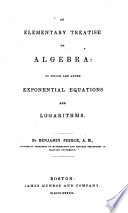 | Benjamin Peirce - Algebra - 1837 - 300 pages
...section the following notation will be retained. We shall use a = the first term of the progression, Z = the last term, r = the common difference, n — the number of terms, S — the sum of all the terms. 174. Problem. To find the last term of an arithmetical progression when its first term, common difference}... | |
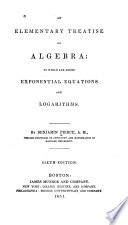 | Benjamin Peirce - Algebra - 1851 - 294 pages
...sectioji the following notation will be retained. We shall use a = the first term of the progression, / r= the last term, r = the common difference, n — the number of terms, 8 = the sum of all the terms. 245. Problem. To find the last term of an arithmetical progression when... | |
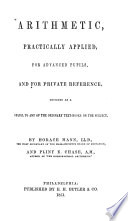 | Horace Mann - 1851 - 384 pages
...ARITHMETICAL AND GEOMETRICAL PROGRESSION. LET a represent the less extreme of a series, I the greater extreme, n the number of terms, s the sum of all the terms in an arithmetical series, p the product of all the terms in a geometrical series, d the arithmetical... | |
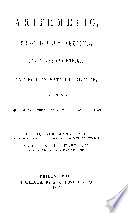 | Horace Mann, Pliny Earle Chase - Arithmetic - 1857 - 388 pages
...ARITHMETICAL AND GEOMETRICAL PROGRESSION. LET a represent the less extreme of a series, I the greater extreme, n the number of terms, s the sum of all the terms in an arithmetical series, p the product of all the terms in a geometrical series, d the arithmetical... | |
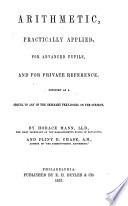 | Horace Mann, Pliny Earle Chase, Phiny Earie Chase - Arithmetic - 1857 - 394 pages
...ARITHMETICAL AND GEOMETRICAL PROGRESSION. LET a represent the less extreme of a series, I the greater extreme, n the number of terms, s the sum of all the terms in an arithmetical series, p the product of all the terms in a geometrical series, d the arithmetical... | |
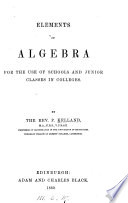 | Philip Kelland - 1860 - 308 pages
...subtractive. 136. PROP. 2. To find the sum of an arithmetic series. Let a represent the first term, b the common difference, n the number of terms, S the sum of n terms : then S = a + (a + b) + (a + 2b) + . . . + a + (n - 1)6 also S = a + (n — l)b + a + (n -... | |
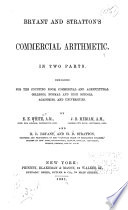 | Emerson Elbridge White - Arithmetic (Commercial), 1861 - 1861 - 348 pages
...expressing their relation, are represented as follows : a = The first term. ^ I = The last term. d = The common difference.. n = The number of terms. s = The sum of all the terms. FORMULAS. (1), a, d and n being given, l=a±(n— I)d. (2), a,n « I " " d=£. (3), a,d " I « « »=^+l.... | |
| |